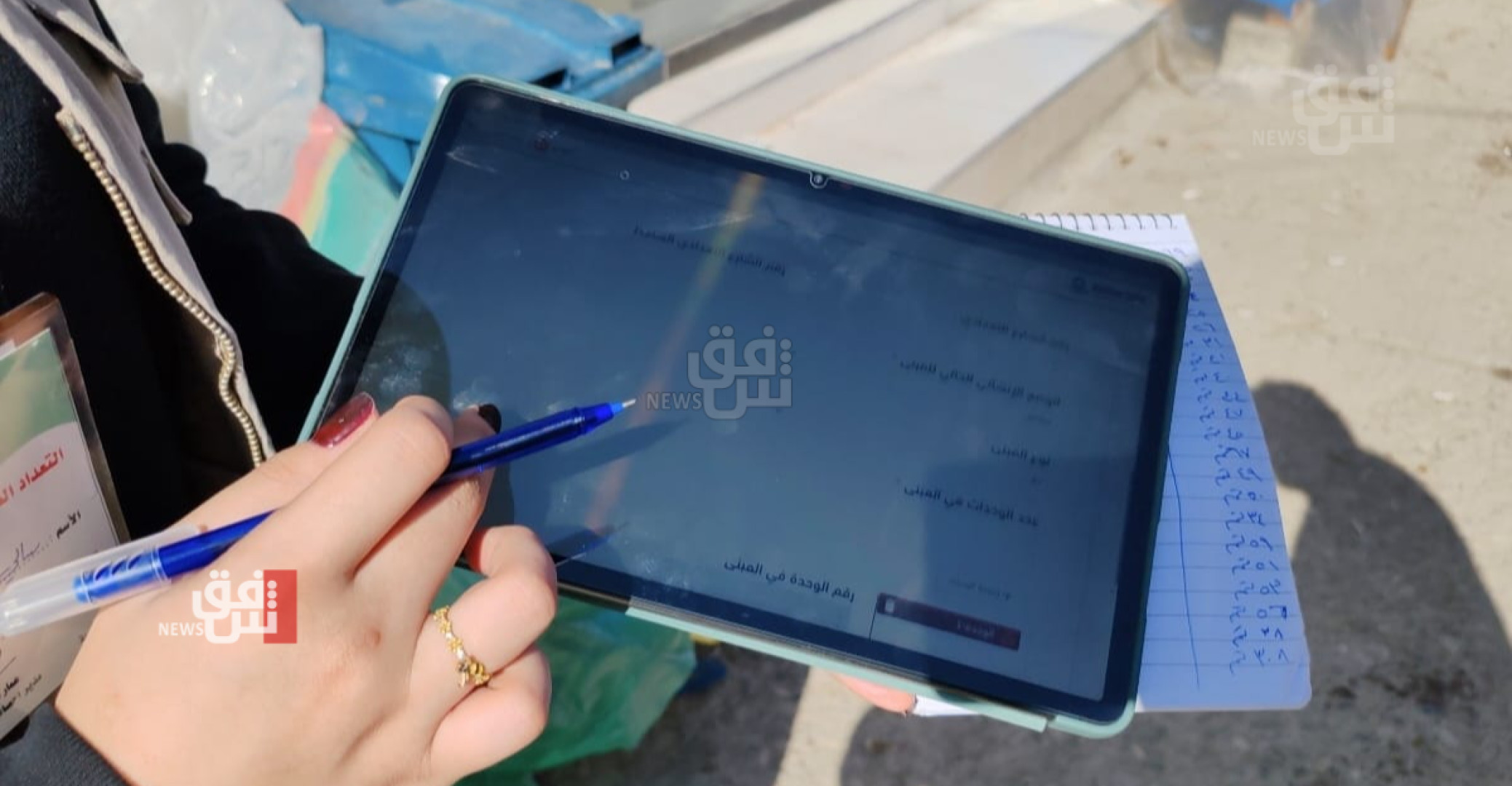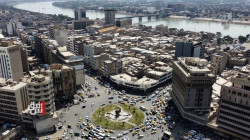Iraq’s first nationwide census in decades uncovers population growth and demographic shifts

Shafaq News/ Iraq’s first nationwide population census in over three decades has revealed a population of 45.4 million, according to preliminary results announced by Prime Minister Mohammed Shia al-Sudani. The survey, which also gathered data on housing and employment, shows key demographic changes, including a decrease in family size and a larger working-age population.
Census Results
PM Al-Sudani announced on November 25 that the initial findings from the country’s first population census in decades reveal Iraq’s population has reached 45.4 million. The census, completed last week, marks the first comprehensive survey of Iraq's population and housing since 1987, delayed by wars and political disputes in the ethnically and religiously diverse nation.
Speaking at a press conference, Al-Sudani stated, “The population stands at 45,407,895, including foreigners and refugees.” He added that 60.2% of the population falls within the working-age group, defined as individuals between 15 and 64 years old, signaling Iraq’s entry into what is termed the “demographic dividend.”
The demographic dividend is the economic growth potential that can result from shifts in a population’s age structure, mainly when the share of the working-age population (15 to 64) is larger than the non-working-age share of the population (14 and younger, and 65 and older).
Al-Sudani noted that children under 15 years constitute 36.1% of Iraq’s population, while the average household size is 5.3 members.
Moreover, the annual population growth rate currently stands at 2.3%.
Preliminary census data also show a nearly even gender distribution, with males accounting for 50.1% of the population and females 49.8%. Women head 11.33% of households, while men head 88.67%.
He also highlighted the population distribution by age, noting that 36.1% are under 15 years old, while only 3.7% are above 65 years.
The census revealed that Iraq has 8,037,221 housing units. Of these, 92.1% are standalone houses, 6.6% are apartments, and 0.4% are traditional mudbrick homes.
Al-Sudani emphasized that these results are preliminary, with final results pending further qualitative data analysis.
“The preliminary results of the census were largely consistent with international expectations that the United Nations relies on for population estimates,” according to Mahdi Al-Alaq, an advisor to the United Nations Population Fund (UNFPA) in Iraq.
Regarding the Kurdistan Region, Dara Rashid, the Kurdish Minister of Planning announced that the population has reached 6,370,668, including foreigners.
Speaking at a press conference, Rashid clarified that these preliminary figures from the national census do not include residents of disputed areas. He noted that the population comprises 3,200,506 males (50.4%) and 3,170,162 females (49.6%).
The data reveal that 84% of Kurdistan’s residents live in urban areas, while 16% reside in rural regions. The region also has 2,028,000 housing units.
Rashid noted that only 4.4% of the population is aged 65 and above.
While these preliminary figures offer a glimpse into Iraq's demographic trends, the census process is still ongoing, with key stages yet to be completed.
Population Census Reaches Key Milestones
Ali Aryan Saleh, Executive Director of Iraq's Population Census at the Ministry of Planning, stated that three-quarters of the census process has been completed, with the second phase—family registration—finished.
The third phase, which involves collecting detailed individual and household data, is now underway. “The Ministry of Planning will present the final results to policymakers to guide future strategies.”
Saleh noted in an interview with Shafaq News that the current data show a decrease in family size, from 7 to 5.7 members. “This decline may be attributed to factors such as reduced marriage rates.” Despite this, he emphasized that the population has stabilized assuring that there is “no population explosion or crisis.”
Doubts and Issues Surround Census
Soad Al-Maliki, a member of the Parliamentary Strategic Planning Committee, explained that the national population census was divided into three stages: the first involved registration and numbering, followed by the family record stage, which faced restrictions. The final stage, deemed the most crucial, focuses on identifying housing needs, income, employment, and other factors to develop solutions.
Al-Maliki pointed out that some issues were encountered during the census, noting concerns raised regarding the accuracy of figures in Kirkuk and Mosul, where some Kurdish residents reportedly returned to register their data. “This claim remains unconfirmed, but data is being reprocessed and verified, with this process expected to continue until December 10.”
Khaled Al-Sarai, head of the National Media Observatory, expressed skepticism about the census process, calling it “a necessary but flawed undertaking.” He argued that Iraq may be one of the countries “most in need of such a survey, but the body responsible for the process was unprepared, leading to noticeable errors.”
“The census did not capture the dynamics of the Kurdistan Region’s influence on Kirkuk, a city crucial for Iraq’s stability,” Al-Sarai told Shafaq News, pointing to political tensions, with some groups seeking to extend their influence, “they take more than their fair share.”
“There are also issues that should not be avoided, such as nationalism, but it seems that the removal of nationalism is linked to attempts by certain parties to expand."
He also criticized the census teams for failing to reach Al-Zubair district in Basra, as reported by the governor, “inaccurate data would result in flawed outcomes.”
Additionally, Al-Sarai raised concerns over the cost of the census, which amounted to 600 billion Iraqi dinars (About $458 million), and the fact that a Jordanian company was hired to conduct the survey instead of using Iraqi expertise. “This raises suspicions about the handling of sensitive data by a foreign entity.”
Economic and Housing Challenges
Demographic expert Samir Khudair voiced concerns about the census findings, particularly regarding the high unemployment rates, which he believed “will pose a major challenge in creating job opportunities, especially for young people and graduates.”
“Housing is another significant issue, as providing adequate housing for families, along with essential services like electricity and potable water, remains a critical need.” He told Shafaq News.
Khudair explained that Iraq’s reliance on oil as a single economic source exacerbates these challenges, suggesting the government diversify the economy by boosting sectors such as industry, agriculture, and tourism while supporting the private sector to absorb the unemployed.
“Policymakers need to consider the census results when designing future economic programs for the country.”





